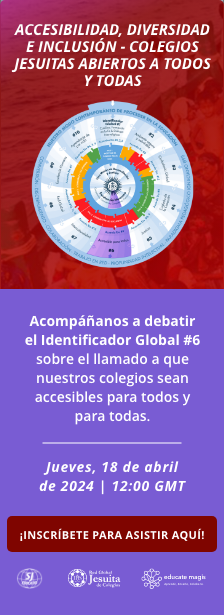The principals and vice principals of all the schools of Patna province of the South Asian Assistancy gathered at St. Xavier’s School, Patna, Bihar for a planning session on Sunday, January 17, 2016 along with the PCE, Fr. Norbert Menezes, S.J and the provincial, Fr. Jose Vadaserry, S.J. In a significant departure from previous practices, all the vice principals including religious and lay persons were invited to attend the meeting. The theme of the meeting was “Ensuring quality education and making a difference in our schools.” The deliberations proceeded on the trajectory suggested by the PCE to decide upon well thought out plans, strategies and activities to communicate a common vision and goals for all the schools through various activities in all the schools during the coming academic year.
It was decided after due deliberations that we need to celebrate the great Indian culture and its diversity through the activities in our schools to communicate and develop the sense of unity in diversity among all our stakeholders. The participants adopted the slogan “My Country: My family” as the theme for the next academic year. All the progammes and activities in the school will be based on this theme and the schools will make all efforts required to communicate this message to all the people. The need to devise strategies to provide quality education in our schools was expressed and endorsed by all the participants and suggested that our schools should profess its Jesuitness and make a difference in the field of education in Bihar. The participants recalled the glorious past of Jesuit education in Bihar and expressed the desire to attain the same status and stature in the days to come.
It was genuinely felt that Jesuit education has a significant role to play in the field of education where everything is viewed and evaluated on the basis of a utilitarian attitude. Forming men and women of conscience, competence, compassion and commitment was felt as the need of the hour. In order to achieve this goal an eight point action plan was finalised and adopted by the participants to be implemented in all the schools during the coming academic year.
- The need to share our Jesuit legacy and heritage with the staff of the school was considered necessary to achieve this Jesuit goal in our schools. Therefore it was decided that each school will conduct two sessions to share our Jesuit legacy with the staff during the year. The meeting also strategized that this will be done in three clusters in the province to ensue implementation and efficacy. As a corollary it was decided that the implementation of IPP will be ensured in all the schools without which the schools cannot claim its Jesuitness.
- The participants agreed that every teacher in the school will prepare one lesson plan per topic following the guidelines of IPP and the reflective aspect will be non-negotiable in this exercise.
- Professional development of the teaching faculty was emphasised in the meeting as a requirement for our schools to be effective and relevant. The meeting mandated that every principal will ensure at least one classroom observation per teacher per semester which will be followed by an interaction session with the teacher.
- It was further decided that the principal will ensure that every teacher completes the self-appraisal at the end of the academic year to help them through a process of self-evaluation to identify their strengths and areas of growth as they advance in their profession as a teacher.
- The formation of our students was identified as one area which required our attention and energy. It was unanimously expressed that keeping in mind the global developments and concerns which are unfolding at various places of the world Jesuit education should not shy away from this responsibility of forming men and women of conscience, compassion and commitment in the process of forming men and women of competence. It was made mandatory for all the schools to plan, arrange and conduct formation sessions for students of classes VI-X. Different themes were suggested and approved for each class to be the focus of this formation during the coming academic session.
- It was further decided that individual and need based mentoring of students will become the hallmark of all the schools. In the first year of implementation each teacher of the school will mentor at least ten needy students during the academic year.
- Inter-ministerial collaboration was recognised as a tool to maximise the use and effectiveness of our personnel and other resources and expertise. The participants decided to have at least three inter-ministerial collaborative activities taking into account the suggestions received from the ministries.
- The school will arrange for inter-school students’ exchange programme accompanied by guided reflections.
Apart from these eight action plans, the PCE suggested that all schools attempt some method of implementing the examination of conscience in all the schools as a form of personal formation and growth among the students and staff. He also recommended that all the schools become registered members of the international network of Jesuit schools by joining Educatemagis.
The Provincial addressed the members present and acknowledged the effort of the schools in carrying on the Jesuit legacy through education and encouraged the participants to implement the decisions of the meeting with enthusiasm and earnestness. The meeting concluded on a very positive note of new enthusiasm and energy to begin the new academic year.
Inicia sesión o Hazte miembro
para crear y ver comentarios

